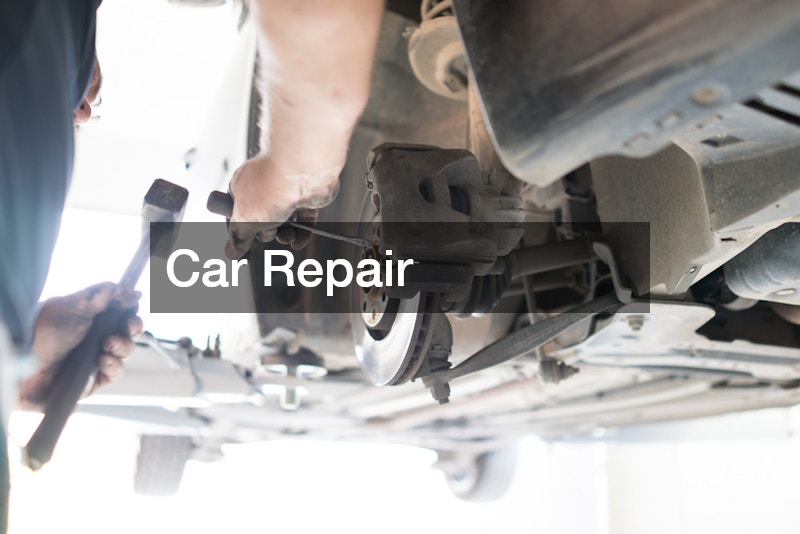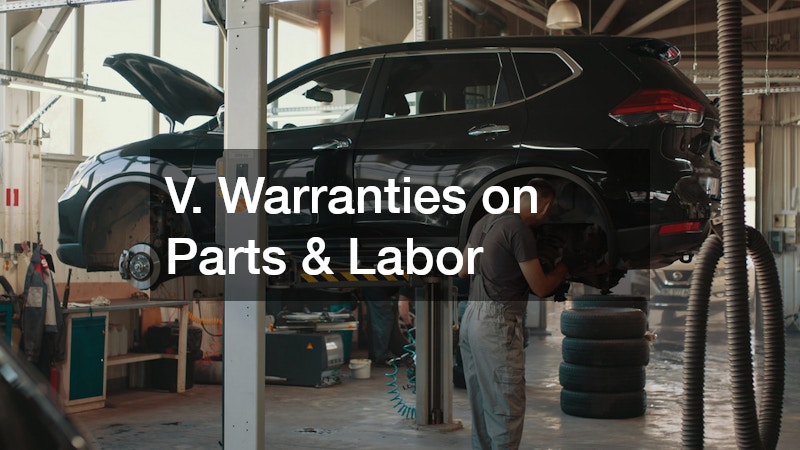What to Look for in a Trustworthy Auto Mechanic

- Look for mechanics with proper certifications like ASE.
- A trustworthy mechanic communicates clearly and gives honest estimates.
- Reputation matters—check online reviews and ask for referrals.
- A professional shop environment can indicate reliable service.
- Warranties on parts and labor show accountability.
- Specialization with your vehicle’s make or model is a plus.
- Beware of high-pressure sales tactics and vague diagnoses.

Your vehicle is one of your biggest investments. Whether you rely on it for daily commutes, road trips, or weekend errands, keeping it in top shape is essential. But even more important than routine maintenance is having a mechanic you can trust. A skilled, honest auto mechanic can save you time, money, and frustration—not to mention keep your vehicle safer on the road.
In this article, we’ll break down what to look for in a trustworthy auto mechanic. Whether you’re new to an area or just tired of inconsistent service, these tips will help you make an informed decision and build a long-term relationship with a mechanic who has your back.
I. Certifications & Credentials: A Baseline for Trust
One of the first things to check when evaluating a mechanic is their certification. It’s the foundation of a trustworthy professional.
What to Look For:
- ASE Certification (Automotive Service Excellence): A nationally recognized credential that indicates the mechanic has passed rigorous exams and has hands-on experience.
- Manufacturer-Specific Training: Mechanics who’ve been trained directly by manufacturers (like Ford, Honda, or Toyota) are typically more familiar with those vehicles.
- State Licensing and Insurance: This protects both you and the shop in case of accidents or mishandling.
Why It Matters:
Certifications demonstrate that a mechanic is not only trained but also committed to maintaining industry standards. You wouldn’t trust a doctor without a license—your car deserves the same level of care.
II. Experience With Your Make & Model
Cars have become increasingly complex, especially with newer models including hybrid and electric vehicles. A good mechanic should be familiar with the specific make and model of your vehicle.
Questions to Ask:
- “How many vehicles like mine have you worked on?”
- “Are you comfortable working with hybrid or diesel engines?”
- “Do you use factory-recommended parts?”
Mechanics with specialized experience are more likely to diagnose problems quickly and fix them correctly the first time. This saves you from return trips and unnecessary expenses.
III. Transparent Communication & Honest Estimates
Trust is built on clear and honest communication. One of the strongest indicators of a reputable mechanic is how they explain problems and pricing.
Red Flags:
- Vague explanations like “your car has issues” without further detail.
- Refusal to give written estimates.
- Sudden extra charges that weren’t discussed.
Green Flags:
- Simple, easy-to-understand explanations of the problem.
- Detailed estimates in writing before the work starts.
- Consent before making any additional repairs.
A good mechanic will show you what’s wrong (often with photos or even physically pointing it out) and explain your options. They respect your right to make an informed decision.
IV. Online Reviews & Word-of-Mouth Recommendations
A mechanic can say all the right things, but customer reviews reveal the real picture.
Where to Look:
- Google Reviews & Yelp: Pay attention to consistent themes in reviews. Are people raving about customer service, or complaining about hidden charges?
- Better Business Bureau (BBB): Offers complaint records and resolution history.
- Facebook Groups or Community Forums: Locals often share honest recommendations here.
You want to find a car repair shop with good reviews, especially those that mention fair pricing, consistent service, and transparency.
What to Watch For:
- Does the shop reply to complaints professionally?
- Are there recurring issues raised in the reviews?
- Do reviewers mention returning again and again?
Word-of-mouth recommendations from friends, family, or coworkers can also point you to a trusted shop quickly.
V. Warranties on Parts & Labor

A warranty is more than just a promise — it’s a sign of accountability and professionalism. Reputable auto repair shops stand behind their work, and a warranty provides peace of mind that you won’t pay twice for the same issue. When a shop offers warranties on both parts and labor, it shows they are confident in the quality of their service and the components they install.
Types of Warranties
Parts Warranty
This warranty covers the actual components used in your repair. If a part fails within the covered time or mileage, the shop will replace it at no additional cost.
Typical coverage includes:
- 12 months or 12,000 miles (industry standard)
- Extended warranties of 24 months or more at premium or manufacturer-backed shops
- OEM (original equipment manufacturer) parts may come with longer warranty coverage than aftermarket parts
Labor Warranty
This covers the workmanship of the repair. If the issue reappears due to improper installation or faulty technique, the shop will fix it free of charge.
Important features include:
- Coverage timelines often mirror parts warranties
- Rework or redo of the labor at no cost to the customer
- Applies even if a different technician performs the follow-up fix
Why It’s Important
Choosing a shop that provides both parts and labor warranties can protect your wallet and your car’s performance. Shops that don’t offer warranties may be using lower-grade parts or cutting corners in workmanship.
Here’s why warranties matter:
- They protect you from paying twice for the same issue.
- They encourage high-quality service because the shop risks losing money on poor work.
- They indicate professionalism and customer care.
- You can hold the shop accountable if a repair doesn’t last.
Always ask about warranty details upfront, including:
- What’s covered and for how long
- Whether coverage includes both parts and labor
- If the warranty is transferable or valid only at that shop
- Whether you’ll receive documentation (you should always get it in writing)
Warranties are especially important when dealing with costly repairs or major components like transmissions, engines, or electrical systems. A car repair shop with good reviews is more likely to offer solid warranties because they have a reputation to uphold.
VI. Professionalism of the Facility
You can learn a lot about a mechanic by simply walking into their shop.
Signs of a Professional Shop:
- Clean waiting area with clear signage and visible licenses.
- Organized workstations—tools stored properly, no oil spills.
- Friendly, knowledgeable front desk staff.
Red Flags:
- Filthy customer areas, unresponsive staff, or no one to greet you.
- Unmarked or run-down buildings without business permits displayed.
While appearances aren’t everything, a well-run and clean environment usually means the shop takes pride in its work and customer service.
VII. Openness to Educate & Explain
A mechanic who takes time to educate you builds trust and shows confidence in their work.
Good Mechanics Will:
- Offer to show you damaged or worn-out parts.
- Explain whether repairs are urgent or can wait.
- Teach you basic car maintenance tips, like checking oil or brake fluid.
Why It Matters:
Mechanics who educate empower you to make smarter car decisions. They don’t rely on keeping customers in the dark to make money.
VIII. Warning Signs of Dishonest Mechanics
Knowing what to avoid is just as important as knowing what to seek out.
Watch Out For:
- High-pressure sales tactics: If they push you to approve expensive repairs without explanation, walk away.
- No written estimate or invoice: Always demand documentation.
- Unwilling to explain issues: This suggests they either don’t know what they’re doing or hope you won’t ask questions.
- Frequent upselling: Consistently recommending unnecessary services is a red flag.
You deserve a mechanic who respects your time, intelligence, and budget.
IX. Building a Long-Term Relationship With a Mechanic
Once you find a reliable mechanic, stay loyal. Long-term relationships lead to better service and less stress.
Benefits of Loyalty:
- They remember your car’s history.
- You may get discounts or quicker turnaround times.
- Easier to schedule appointments during busy seasons.
Treat your mechanic with the same respect you’d expect from them—pay promptly, follow their advice, and refer others when satisfied.
X. Questions to Ask Before Choosing a Mechanic
Before committing to a repair shop, do a quick interview. Here are some good questions to ask:
- “Do you specialize in my type of car?”
- “What certifications do your mechanics hold?”
- “Can I see a sample estimate?”
- “Do you offer a warranty on parts and labor?”
- “Can I wait while my car is serviced, or is it drop-off only?”
- “Do you use OEM (original equipment manufacturer) parts?”
These questions help reveal how organized, honest, and professional the shop really is.
Conclusion: Trust Is Earned, Not Assumed
Choosing the right auto mechanic can feel overwhelming, but it doesn’t have to be. Start with certifications, dig into reviews, and visit the shop before making any commitments. Pay attention to how the mechanic communicates and whether they stand behind their work. The right mechanic doesn’t just fix your car—they give you peace of mind.
Taking time to find a reliable, experienced professional now can save you hundreds—or even thousands—down the road. You’ll thank yourself the next time your check engine light turns on and you already know exactly who to call.





